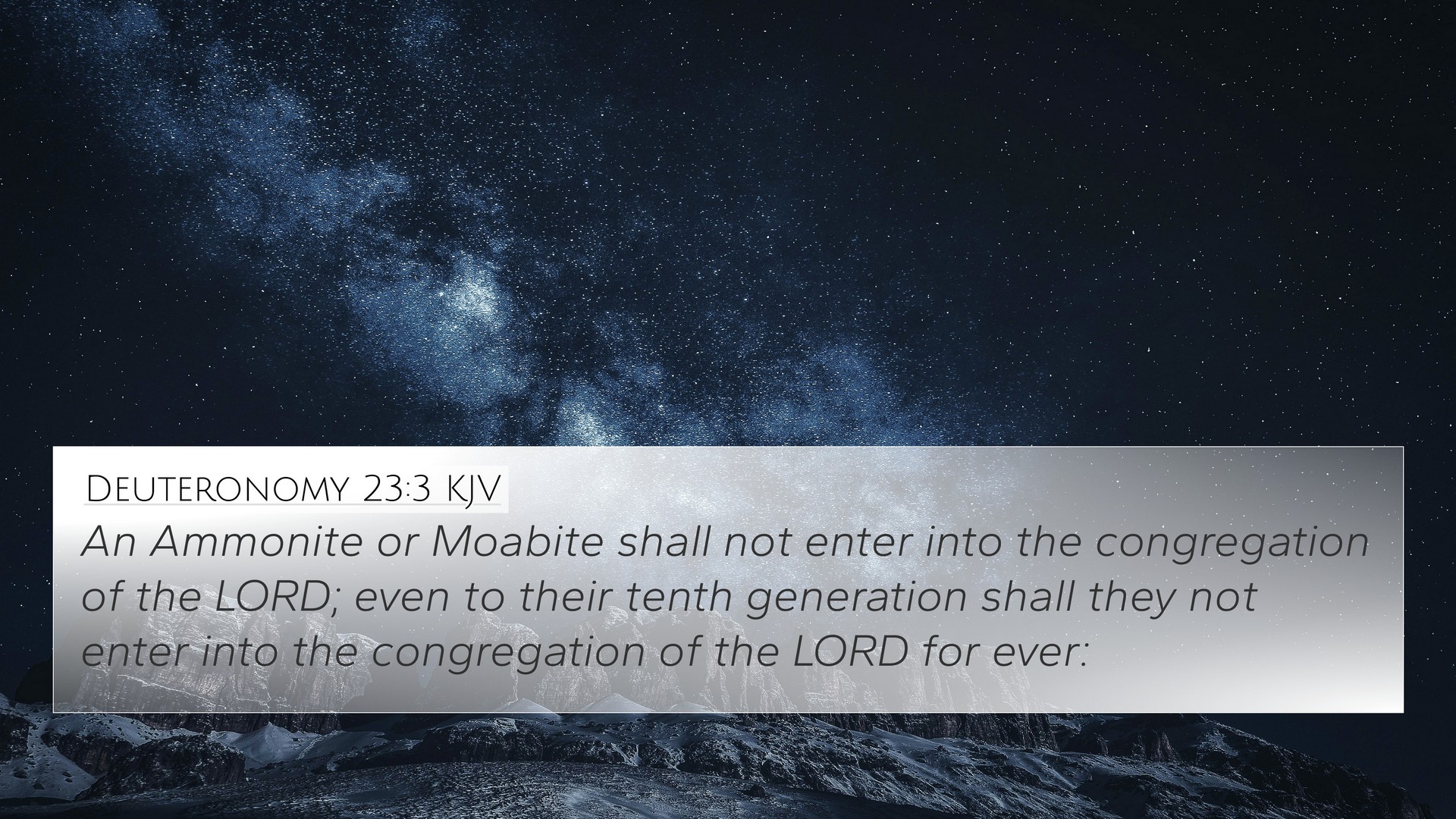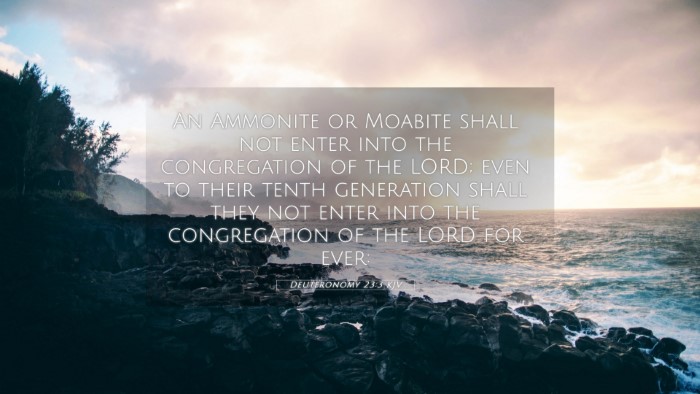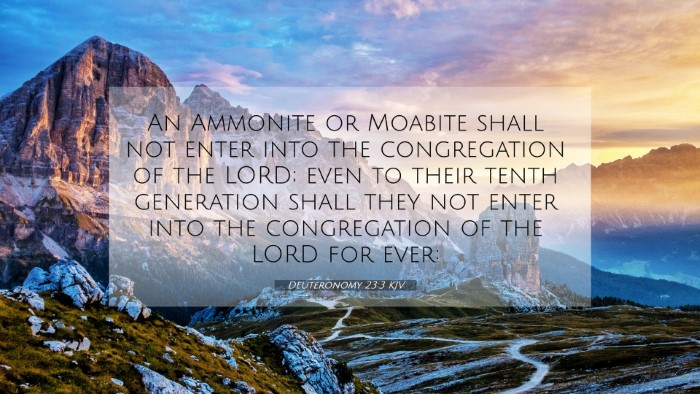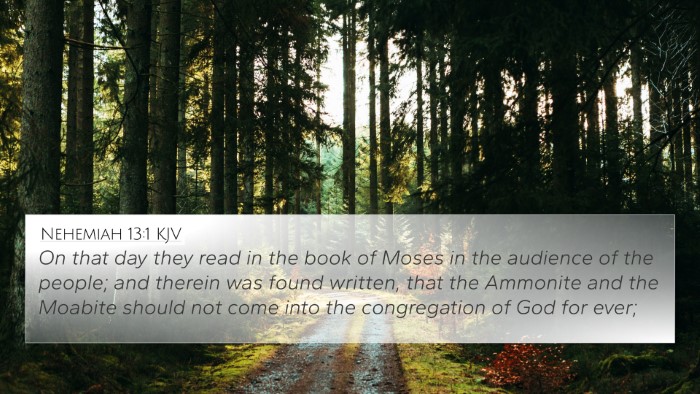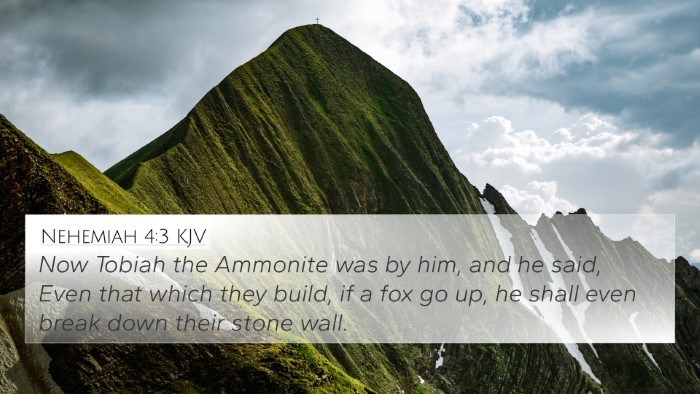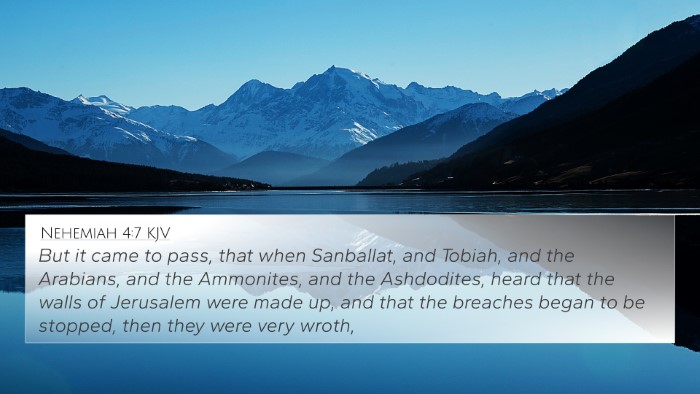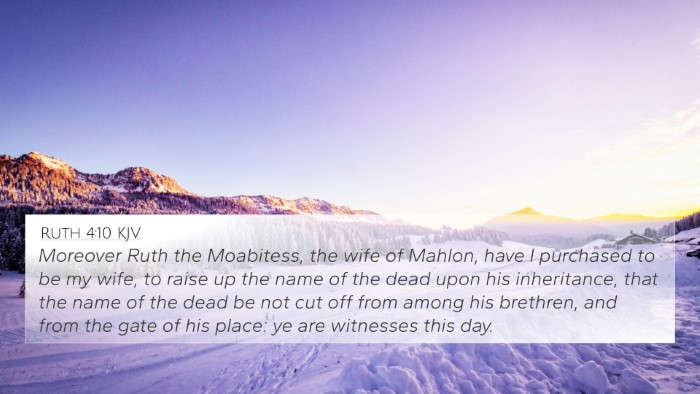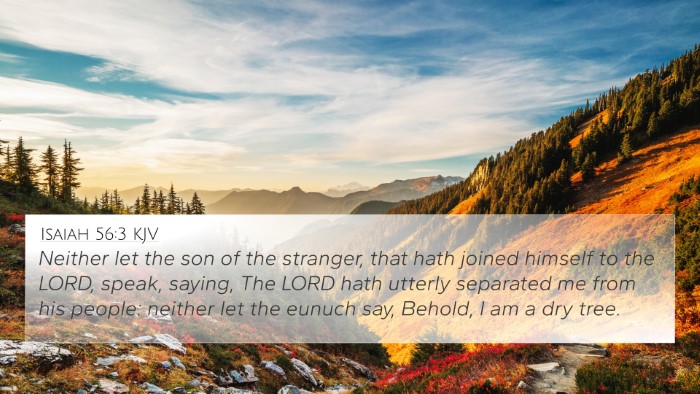Understanding Deuteronomy 23:3
Deuteronomy 23:3 states, "An Ammonite or Moabite shall not enter into the congregation of the LORD; even to their tenth generation shall they not enter into the congregation of the LORD for ever." This verse informs us about God's expectations regarding the nations of Ammon and Moab, positioning them outside the community of His people due to historical animosities and their idolatries.
Summary of Deuteronomy 23:3
The prohibition against Ammonites and Moabites joining the congregation reflects the serious nature of national and spiritual integrity within Israel. It highlights the covenantal identity that God desired His people to maintain, distinct from the practices of surrounding nations.
Insights from Commentaries
Matthew Henry
Matthew Henry emphasizes that this exclusion was not merely based on ethnicity but grounded in the actions of these nations against Israel. The Ammonites and Moabites opposed Israel during their journey through the wilderness, refusing to offer assistance and instead acting as adversaries. Consequently, their persistent enmity and the lure of idolatrous practices warranted a severe consequence: exclusion from the worship community.
Albert Barnes
Albert Barnes notes that this ban intended to preserve the purity of Israel's worship and national identity. He explains that associating with those who worshiped false gods posed a significant risk to Israel's fidelity to Yahweh. The phrase "to their tenth generation" signals the enduring nature of this prohibition, underscoring a long-term separation designed to protect the covenant community from corruption.
Adam Clarke
Adam Clarke elaborates on the historical context, explaining how the Ammonite and Moabite nations originated from Lot, Abraham's nephew. Despite this family connection, their hostile actions justified the exclusion, demonstrating that lineage alone does not grant access to God's people. Clarke also mentions the importance of faithfulness to God as a prerequisite for fellowship within His community.
Bible Cross-References
- Genesis 19:36-38 - Discusses the origins of the Moabites and Ammonites.
- Numbers 22-24 - The story of Balaam and the antagonism between Israel and Moab.
- Ruth 1:4 - A Moabite woman who became part of Israel through faith.
- Jeremiah 48:1 - Prophecies against Moab for their pride and opposition to Israel.
- Isaiah 15-16 - Further condemnation of Moab and calls for repentance.
- Psalms 137:7 - Reflects on the hostility of the Edomites against Israel.
- Matthew 5:13-14 - Calls believers to remain distinct as salt and light in the world.
Thematic Connections
This verse ties into broader theological themes, including the importance of maintaining purity of worship and the challenges of intermingling with those who follow false deities. It provides insight into God's redemptive plan, where inclusion into His community is often seen as contingent upon faith and righteousness rather than mere heritage.
Practical Applications
Believers today can learn vital lessons from this passage regarding the influence of relationships and the importance of discerning fellowship within communities of faith. It encourages engagement with non-believers for evangelistic purposes while maintaining a clear stance against practices contrary to Biblical teachings.
Cross-Referencing Biblical Texts
Utilizing a Bible concordance or cross-reference guide can effectively reveal deeper insights when studying passages like Deuteronomy 23:3. Understanding how this verse connects with others helps to grasp the overarching narrative within the scriptures.
Conclusion
Deuteronomy 23:3 serves as a critical reminder of the importance of spiritual integrity within the people of God. The historical and theological significance of the Ammonite and Moabite ban invites believers to reflect on their relationships and the purity of their worship, fostering a commitment to remain aligned with God's covenant.
